The legal and illegal jobs ordinary North Koreans do to survive
Working lives in the Hermit Kingdom
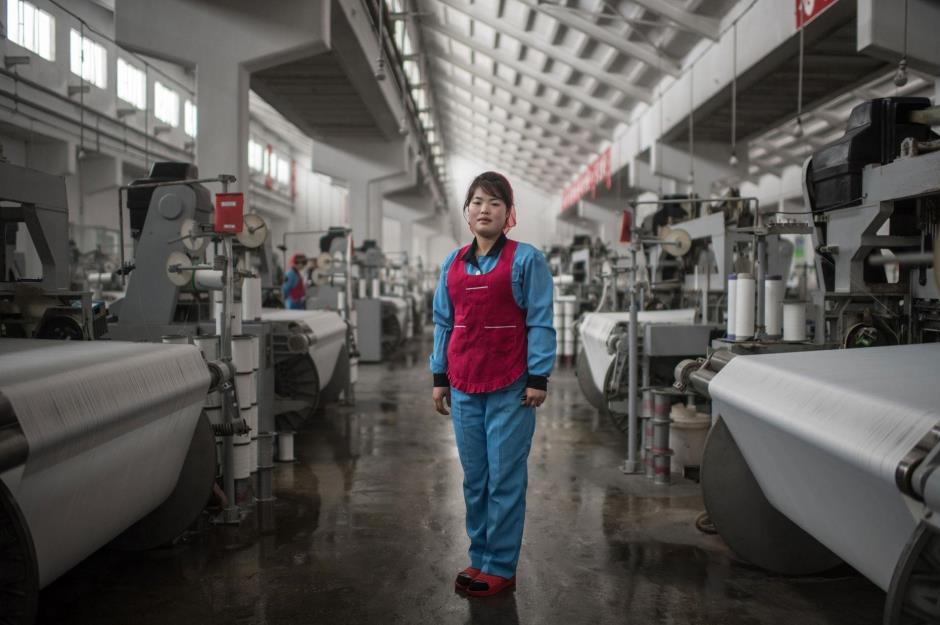
If you've ever found yourself feeling fed up with work, you might want to thank your lucky stars you don't live in North Korea. The country's typical worker is trapped in the same job for life, takes home just a few hundred dollars a month – or even a year, in some cases – and has to grapple with everything from extreme discrimination to rampant corruption. Read on as we look at the closely-guarded secrets of North Korea's employment market, and uncover the jobs people really do to survive. All dollar values in US dollars.
Job discrimination
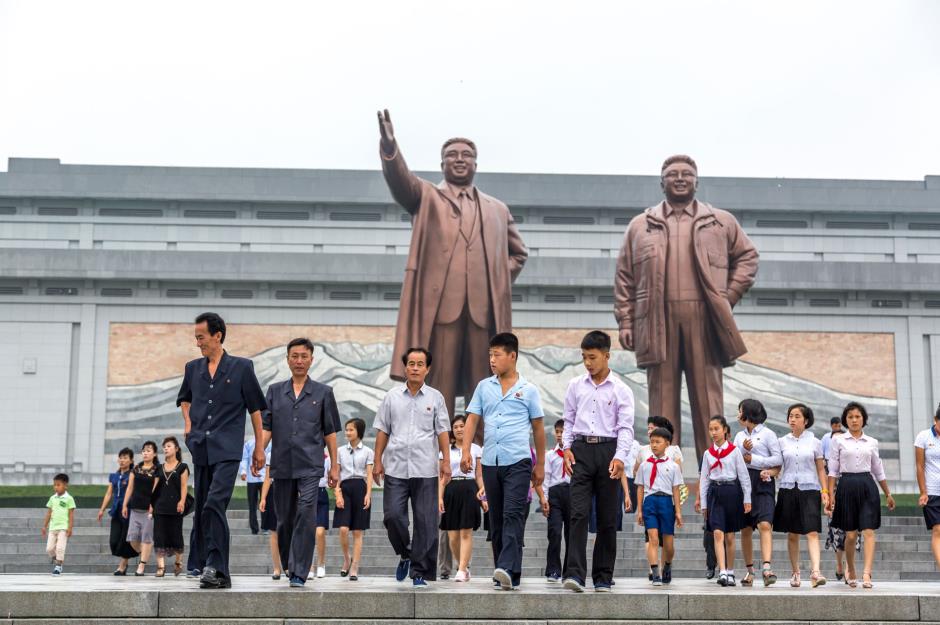
The state's strict 'songbun' system classifies every citizen from birth, depending on the status of their father. There are three key social statuses ('core', 'wavering', and 'hostile'), and around 50 sub-classifications. A citizen's status determines what sort of job he or she will be allocated later on in life.
Dead-end jobs
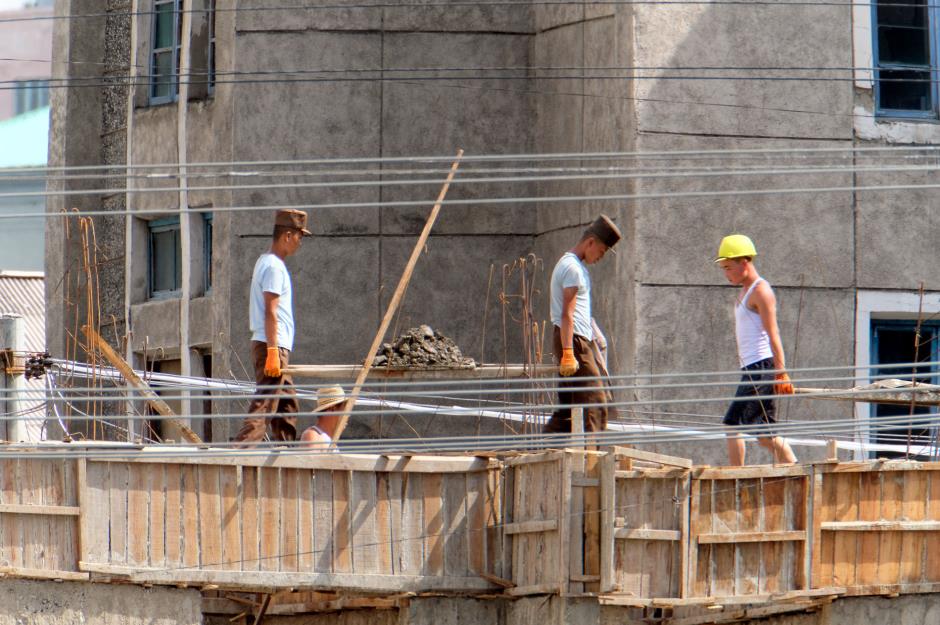
Depending on their songbun, most people in North Korea are assigned an official role. Quotas are drawn up by officials in sectors facing staff shortages, and the vast majority of citizens are forcibly placed in a vacant role for the rest of their days. Although there is a pension system in North Korea, not everybody is eligible. Those that are receive the equivalent of just 50 cents a month, according to a 2015 article in the Guardian. After inflation, this works out to 58 cents (44p) today.
Sponsored Content
Special treatment
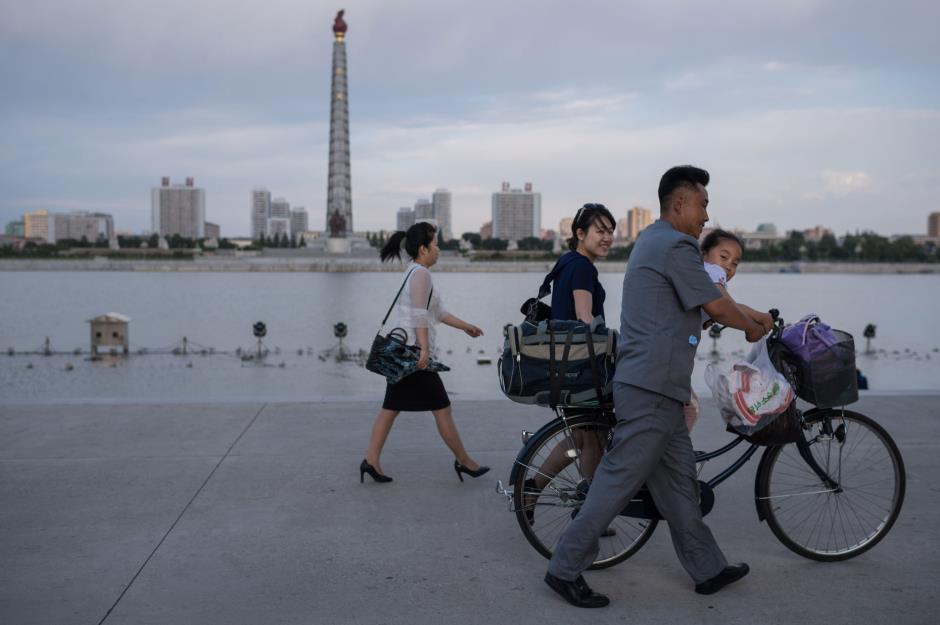
People with a good social standing have more freedom when it comes to choosing their career, and can even change jobs if they're particularly well-connected. Lower status citizens, however, often have to bribe officials with cash and gifts to land the job they want. Corruption has become endemic in the country.
Official regulations
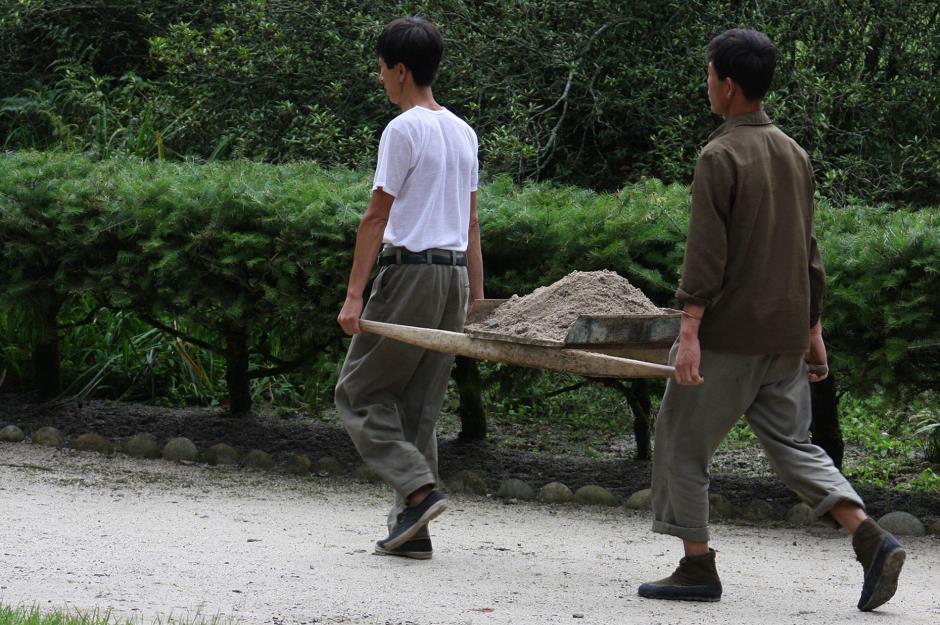
Employees are supposed to work a 48-hour week (not including overtime) across six days, with a day off on Sundays. However, the official regulations are frequently flouted. In 2016, the entire non-elite workforce was ordered to toil for 70 consecutive days in a bid to boost the country's economy. If a worker wished to take a day off during that period, they had to pay the equivalent of a half a US dollar for it – around twice the average monthly earning in North Korea at the time.
Military service first
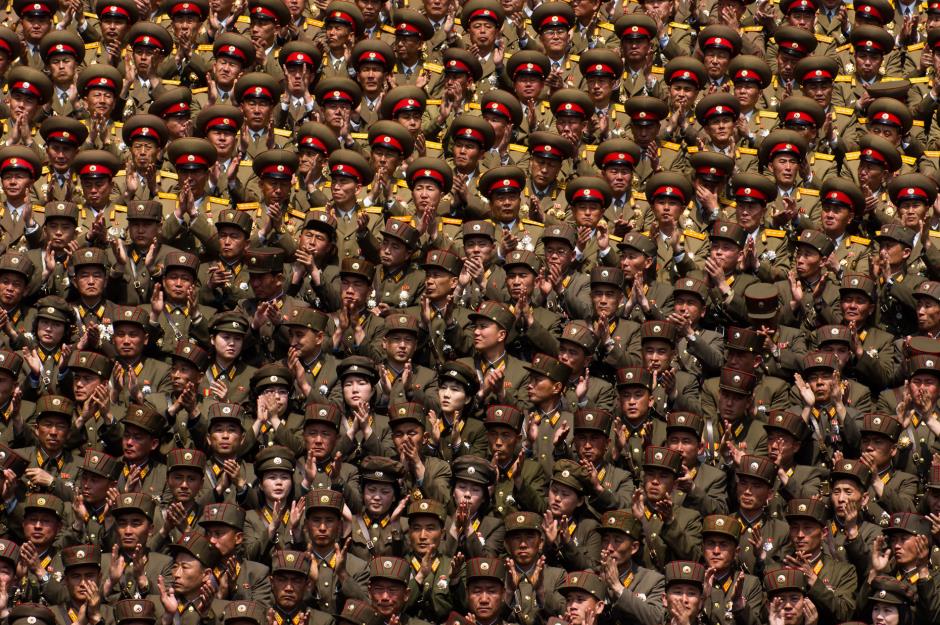
Upon leaving high school, all citizens between the ages of 17 and 20 years are obliged to join the armed forces. Men are conscripted for a period of up to 10 years and women are required to serve until the age of 23.
Sponsored Content
Farmers
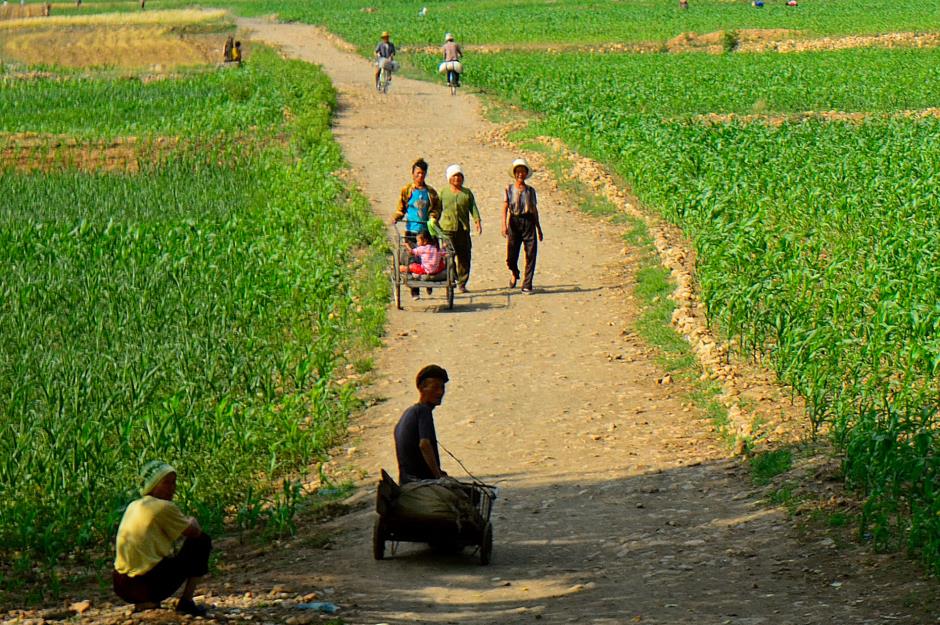
After military service, most citizens will be assigned their official job for life. For the majority, this will be farming-related. According to the World Bank, a massive 59% of the North Korean workforce are employed in agriculture, compared to just 5% in South Korea, 2% in the USA and fewer than 1% in the UK. Figures suggest that farmers in the country earn as little as $1-$2 (75p-£1.50) a month, meaning the majority of people in rural North Korea are living in poverty.
Street sweepers
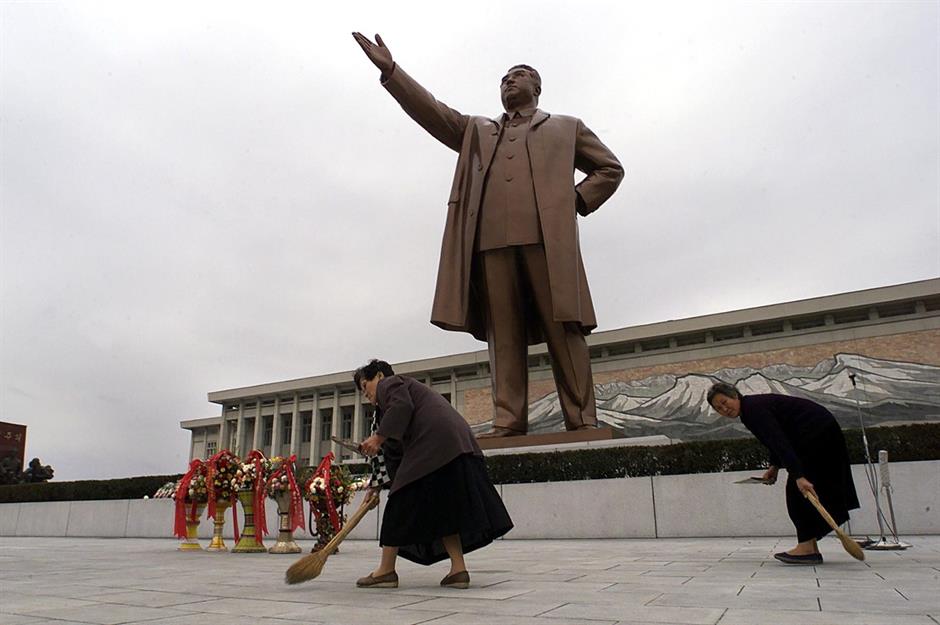
In a country where presentation is everything, it's no surprise to discover that workers are employed to keep the streets of North Korea clean. Although photos have shown that soldiers may be responsible for cleaning streets in preparation for a big parade or event, the burden normally falls on the shoulders of civilians – often women.
Cleanliness is so important in North Korea that having a dusty living room in your home could land you a prison sentence, and many journalists have taken photos of street cleaners sweeping pavements that are already spotless. Secret footage from 2010 even showed street cleaners attempting to sweep away puddles from the roads...
Factory workers
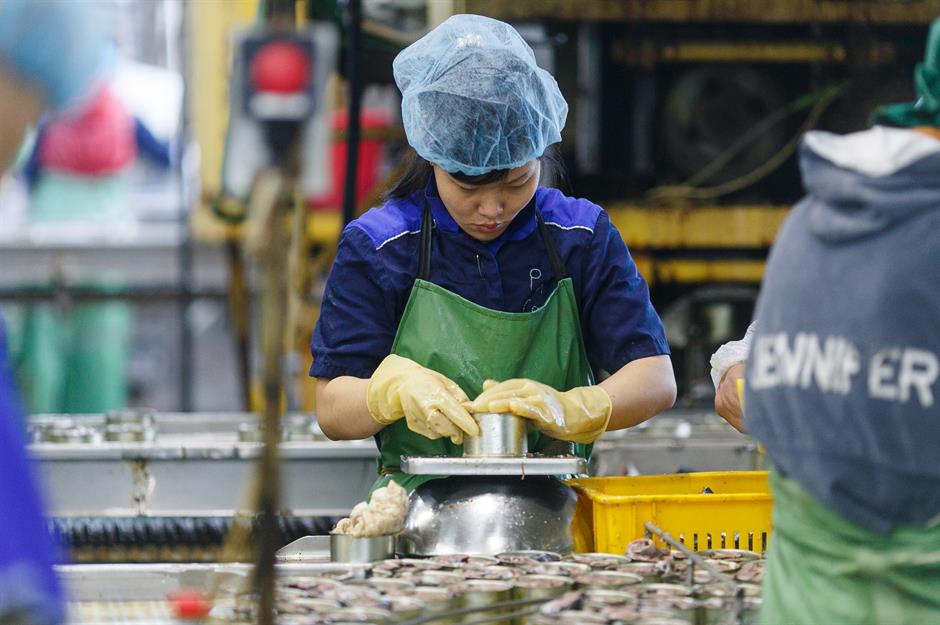
From food and textiles to wires and cables, North Korea is home to a vast range of factories. Although North Koreans in countries such as China can work in appalling conditions, some of the state-owned factories are actually considered desirable places to work. For example, pictures taken by the photographer Stéphan Gladieu, published in the Guardian, show employees at a Pyongyang food factory relaxing in an on-site swimming pool.
But the COVID-19 pandemic has thrust some factory workers into poverty. A report from GlobalSecurity.org claims that hundreds of workers abandoned their jobs at a drill factory on the North Korean border to catch seafood to export to China instead, after slowing production rates meant their government-issued salaries had left them destitute.
Sponsored Content
Hairdressers
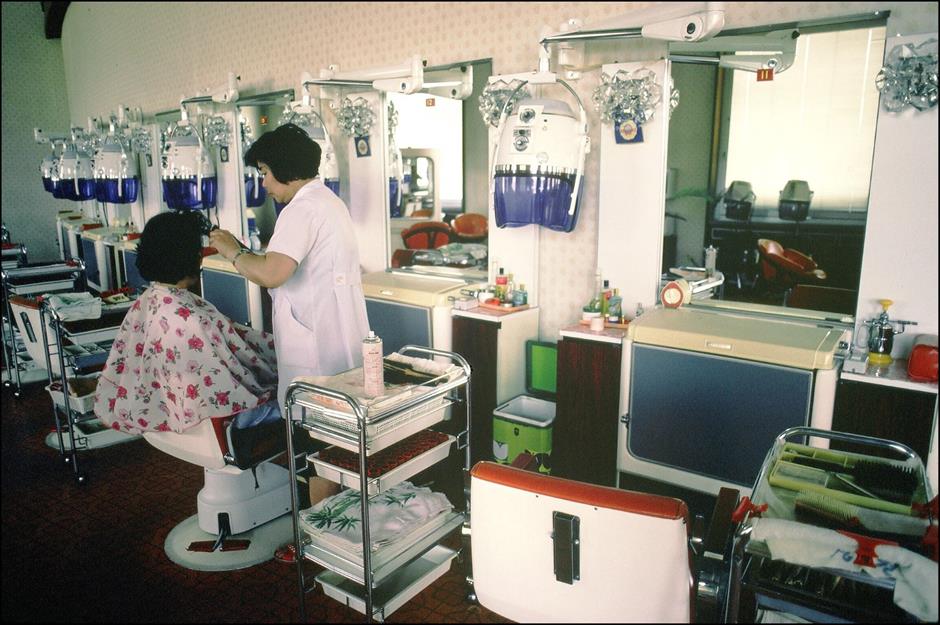
In North Korea, hairstyle choices are limited. In fact, there are just 28 state-approved haircuts, 18 for women and 10 for men. Married women have to keep their hair short, while unmarried women can opt for longer styles. Men aren't allowed to grow their hair longer than 5cm (1.96 inches), or 7cm (2.75 inches) if they're from an older generation, and everyone has to steer clear of imitating leader Kim Jong-un's haircut.
The professionals trained to create these 28 different government-approved hairstyles are typically older women. With the typical men's haircut costing around 4,500 KPW ($5 or £3.80), it's likely that hairdressers earn the national average salary. Currently, the average salary bracket ranges from 49,100 KPW ($54.56 or £40.48) to 194,000 KPW ($215.56 or £162) a month, according to data from Salary Explorer.
Teachers
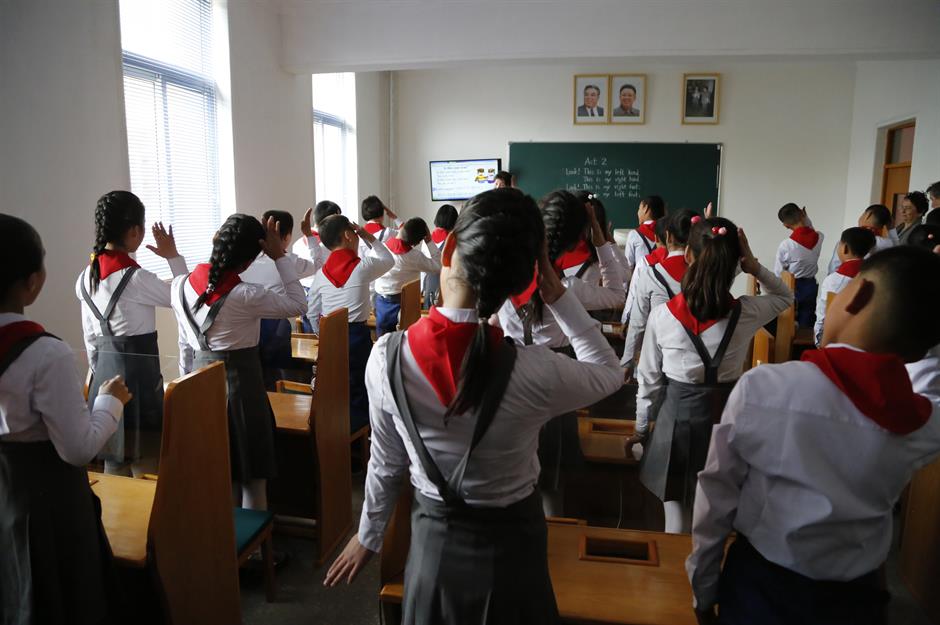
According to figures quoted by UNESCO, North Korea has one of the highest literacy rates in the world, at an impressive 98-100%. Like the country's 0% COVID rate and 100% approval rating for the Workers' Party, this self-reported number should be taken with a pinch of salt – but it's true that state-approved education is highly valued in North Korea.
Figures from the 1980s show there were over 170,000 primary and secondary teachers in the country, of which 80% were women. According to Salary Explorer, teachers earn an average monthly salary of 160,000 KPW, equivalent to $178 (£134).
Traffic ladies
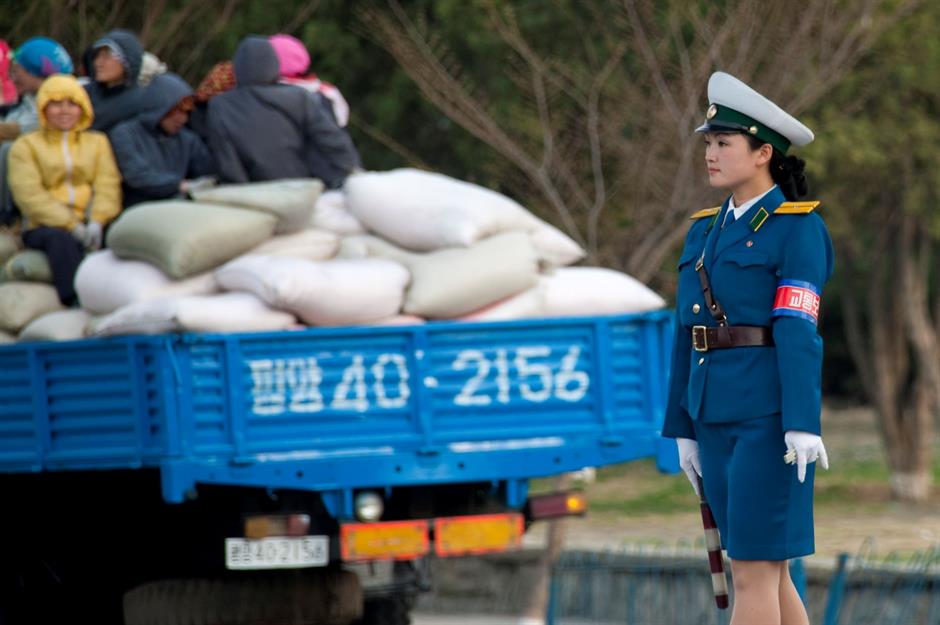
The low average salaries of North Korean workers mean that most people can't afford a car. But that hasn't stopped the country from employing 'human traffic lights' to manage the almost deserted roads in Pyongyang. Traffic security officers, unofficially known as 'traffic ladies', are responsible for standing in the road to direct vehicles at intersections – even when there are no vehicles there.
Sources claim that these professionals must be romantically unattached, conventionally attractive, and under 26 years old. Because they've become a symbol of Pyongyang, the salary for this desirable role is likely to be on the higher end of average.
Sponsored Content
Foreign factory workers
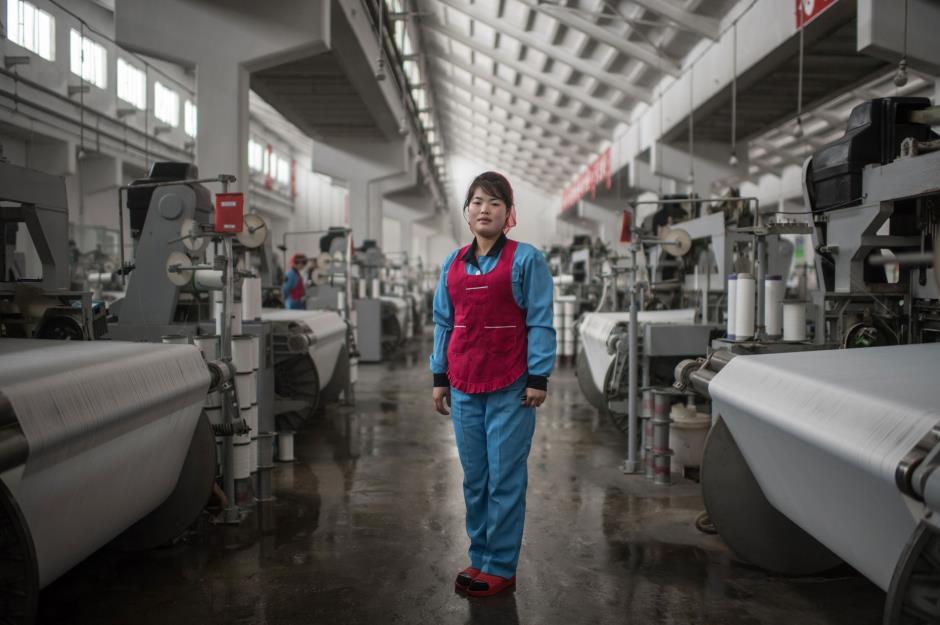
As well as factories in North Korea itself, many natives work at foreign-owned factories concentrated near the Chinese border, where goods can be smuggled out easily. Workers in these factories are paid in foreign currency and can earn more than $100 (£75) a month – but it's not all good news.
Reports have shown that many North Koreans are subjected to terrible working conditions, toiling for up to 18 hours a day under constant surveillance. To add insult to injury, they must hand over as much as 70% of their pay to the North Korean government.
Slave labour
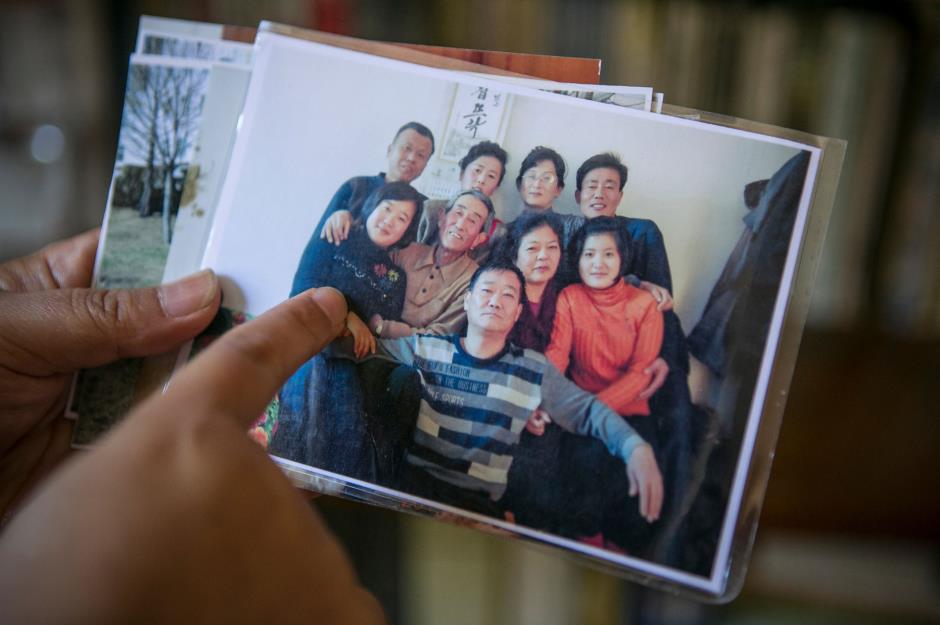
North Koreans aren't just subjected to slave labour abroad. Human Rights Watch and the South Korean government estimate that between 150,000 and 200,000 people live in forced labour camps in the country, many of whom were caught while trying to cross the border and escape. Under North Korea's 'three generations of punishment' law, the entire extended family of a person who has committed a crime can be imprisoned, along with the subsequent two generations.
Death camps
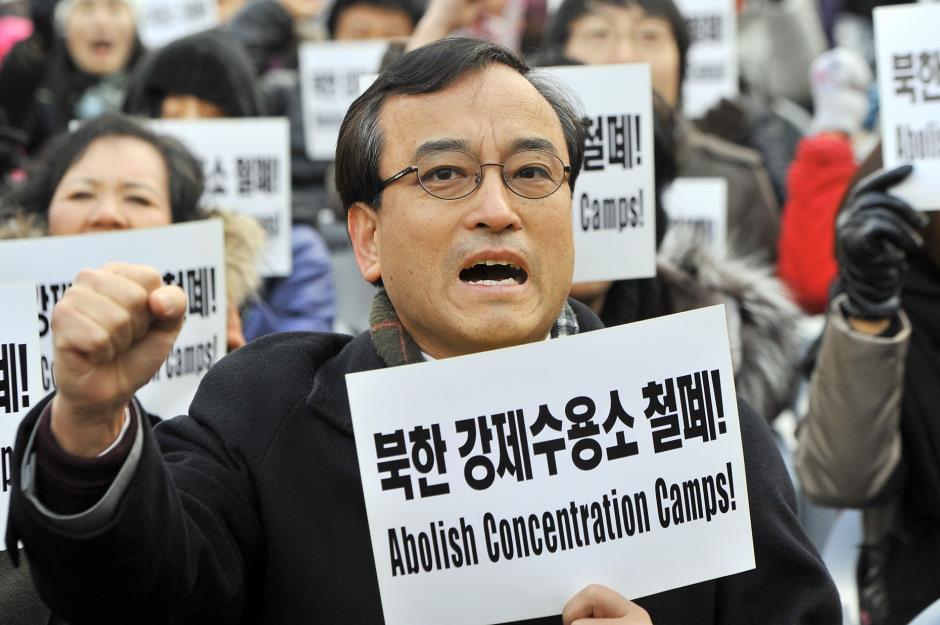
Amnesty International reports that as many as 40% of prison camp detainees die from malnutrition while engaged in hard labour. The work is dangerously arduous, and can range from back-breaking mining to logging.
Sponsored Content
Desirable jobs
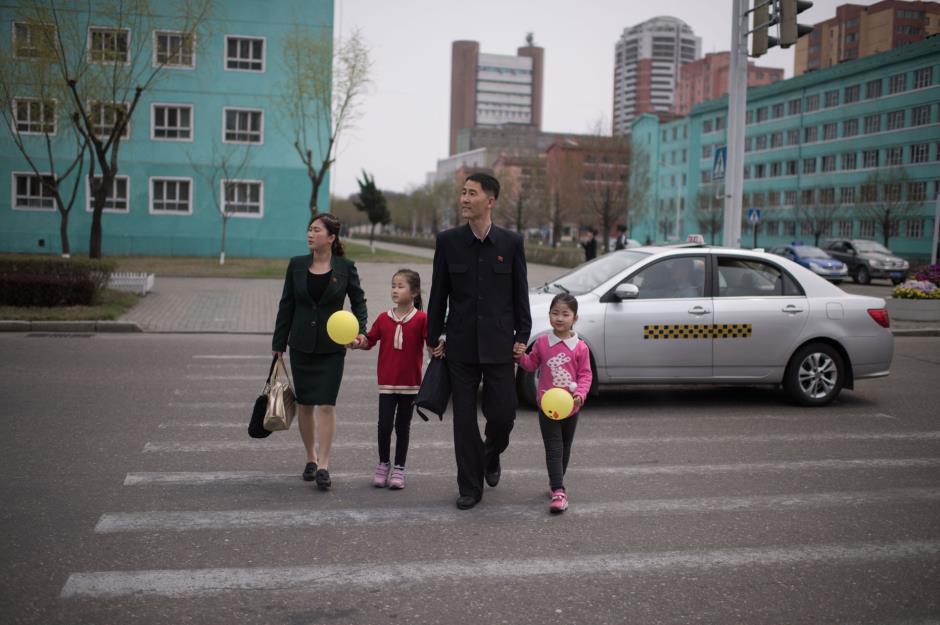
But not everybody has to rely on low-paid official jobs and the black market. The most desirable jobs in North Korea can pay thousands of dollars a month – if you have the right songbun to qualify.
This status applies to an estimated 10% of North Koreans, many of whom live in the capital, Pyongyang. High-ranking military posts are the most sought-after jobs, followed by science roles, diplomatic positions, and jobs that pay wages in foreign currency.
Taxi drivers
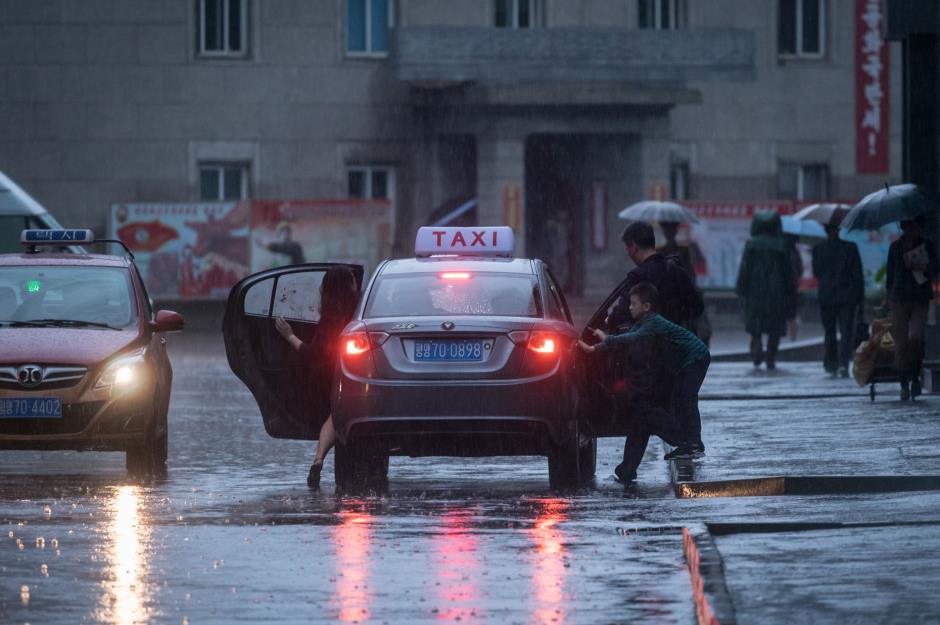
Taxi driving can be a lucrative way to earn extra money. Private cab firms began to flourish in North Korea as Uber-style on-demand services sprang up across the country to meet increasing demand from the affluent elite, as well as lower status entrepreneurs with money to spend.
But taxi driving could be a dying profession, with drivers in Pyongyang reportedly struggling since 2019 due to growing competition and government taxes. The Diplomat reports that these taxes can reach a staggering $130 (£98) a day – a mindblowing sum considering that the average national salary is around $215 (£162) a month.
Military
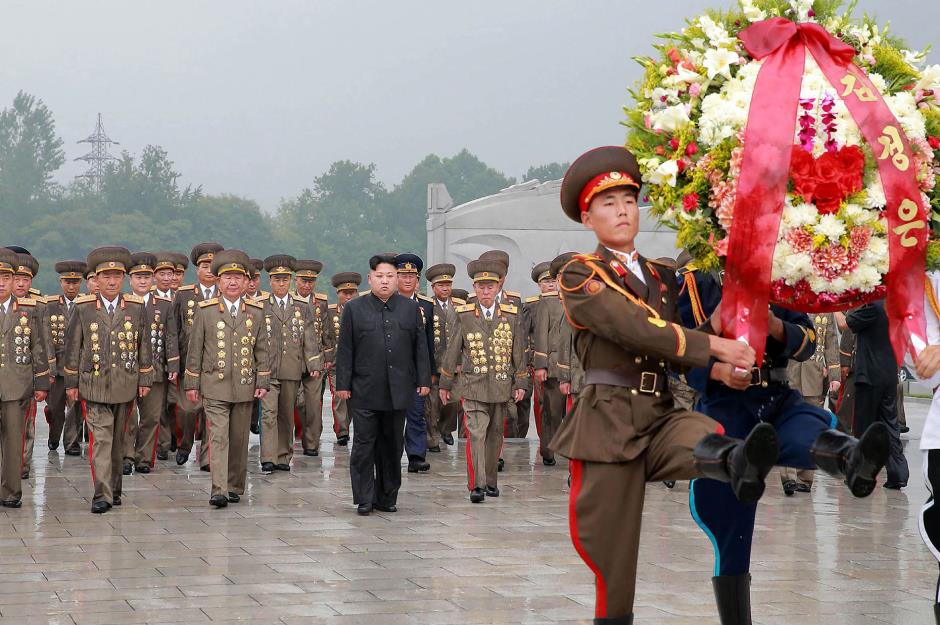
The upper echelons of the military take home thousands of dollars a month, and enjoy freebies such as luxury housing, food, and other essentials too. Historically, these professionals have also been entitled to extra food rations, giving them even greater privilege over the starving masses.
Sponsored Content
Science roles

Science jobs are well-paid and massively oversubscribed in North Korea, which is hardly surprising given the country's infamous nuclear and cyberwarfare programmes. According to a recent defector, “all parents now have an obsessive desire to raise their children to become scientists”. Many pay private tutors to coach their children in science, and aren't afraid to bribe officials to get their children onto the best university courses.
Adding to the appeal, gifted science students in the country are often exempt from military service. Once they qualify, science grads (particularly nuclear physicists) can expect to earn big bucks. The top nuclear scientists in the country, many of whom were recruited from the former Soviet Union, are reported to take home as much as $10,000 (£7.5k) a month.
Bureau 121

Talented computer science grads with good songbun may be privileged enough to bag a role at North Korea's shady cyberwarfare agency, Bureau 121. The agency is thought to employ thousands of highly-paid hackers, who have infiltrated computer systems worldwide. In February 2021, three North Korean hackers were indicted in the US after it was revealed they were part of a conspiracy to extort over $1.3 billion (£978m) from a range of organisations.
Diplomatic posts
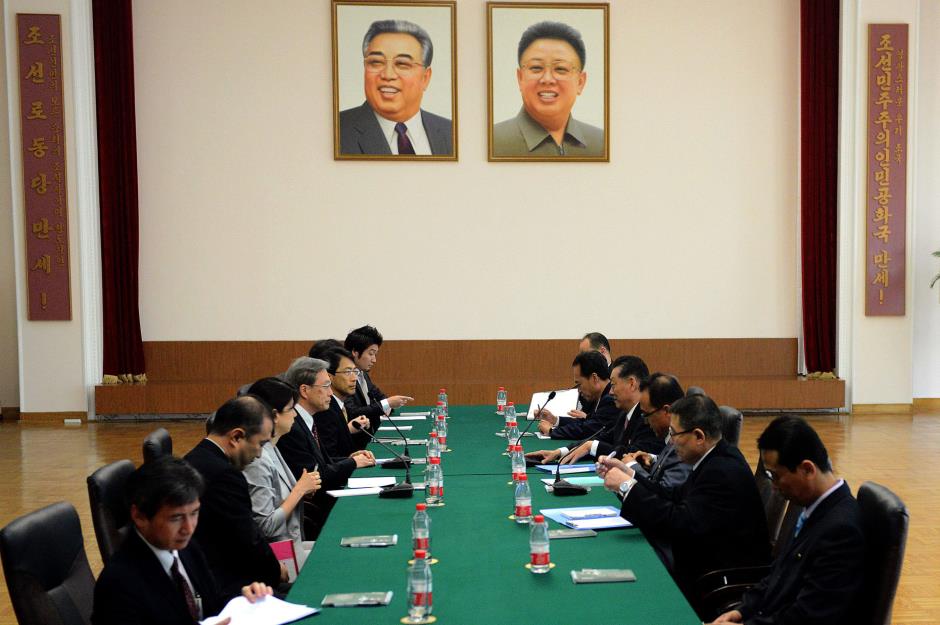
While poorly remunerated compared to other countries, diplomatic jobs are almost as coveted as science jobs in North Korea. An ambassador earns around $1,100 (£828) a month, while junior staff can expect to take home up to $700 (£527).
Sponsored Content
Gender pay gap
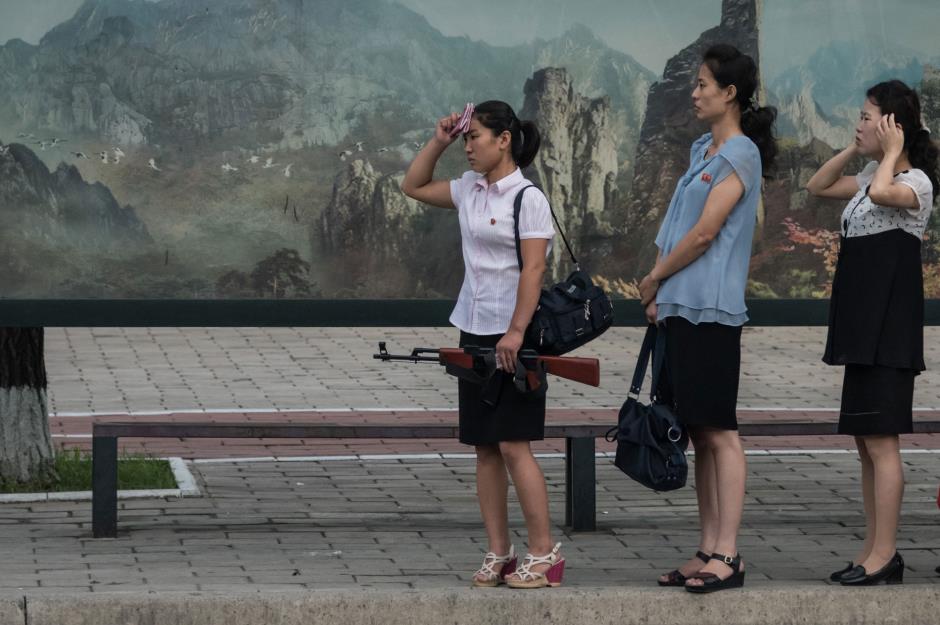
Unlike most countries in the world, women earn more money than men in North Korea. Men tend to find it harder to bribe their way out of their official job so women, who are entitled to long periods of leave to raise their families, dominate the country's unofficial market economy.
In fact, research by the Korea Institute for National Unification (KINU), headquartered in Seoul, South Korea, found that North Korean women earn 70% of a household's income on average. This is despite the fact that they make up just 50% of the workforce.
Black market boom
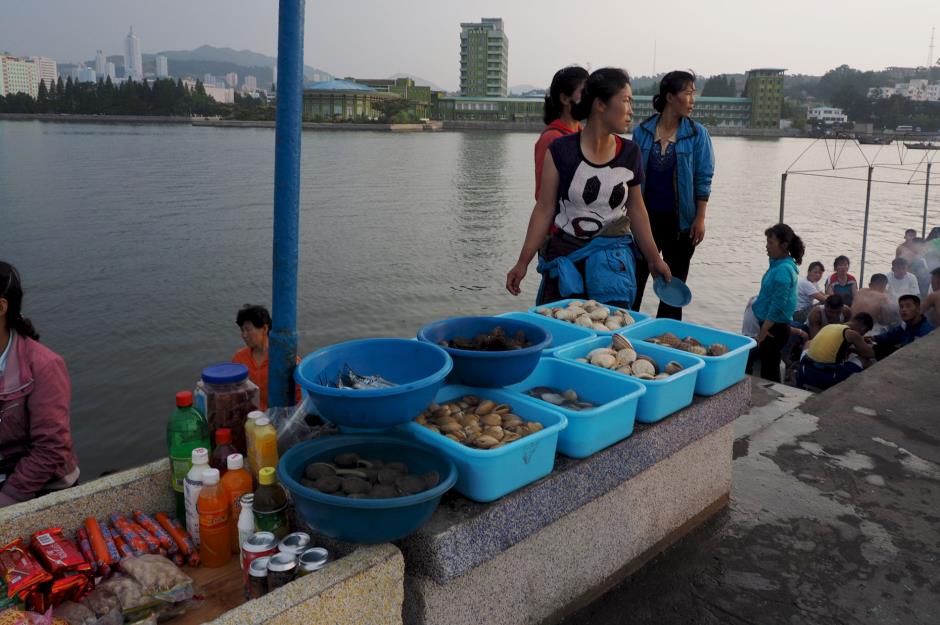
With most official wages are obscenely low and workers often not being paid for months on end, many people rely on shadier ways to supplement their income. An estimated 80% of North Koreans make money on the country's colossal black market, which encompasses everything from running unofficial stalls to smuggling drugs.
Jangmadang
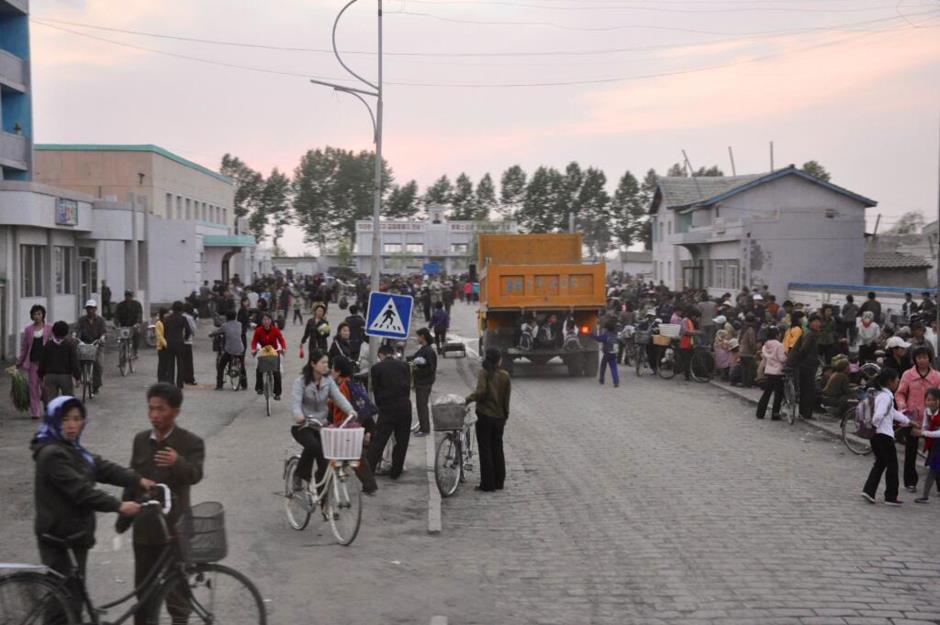
Every village, town, and city in North Korea boasts at least one so-called 'jangmadang' market. Sellers range from farmers hawking potatoes they've grown in their spare time to homemakers plying cheap electricals smuggled in from China. They're all trying to make enough extra cash to survive. People have become increasingly reliant on jangmadang markets, and the informal economy they sustain, since the famine in the 1990s.
Millennial North Koreans are sometimes known as the 'jangmadang generation', as many children born during the 80s and 90s depended on their family's secondary income for survival while growing up. A thriving market stall or convenience store can bring in around $100 (£75) a month, while a clandestine workshop manufacturing clothing or other goods can provide its owner with a monthly income of several hundred dollars.
Sponsored Content
Meth-dealing

More sinister is the fact that many North Koreans deal methamphetamine to make ends meet. It's estimated that around 30% of the country's population – approximately 7.5 million people – use illegal drugs, with crystal meth the narcotic of choice for many.
The government is reported to have increased the production of the drug for sale at home and overseas to generate hard currency, according to German media site DW. An ex-government official who defected from North Korea confirmed this when interviewed by the BBC, saying he was tasked with building a drugs lab to raise "revolutionary" funds.
Illegal exports

Even highly-qualified professionals earn ridiculously low official salaries. A doctor who fled the regime told The Washington Post last year that he illegally exported traditional medicines to China in order to bolster his meagre $4 (£2.88) monthly salary.
Now see the shocking things North Korea's government spends its money on
Comments
Be the first to comment
Do you want to comment on this article? You need to be signed in for this feature